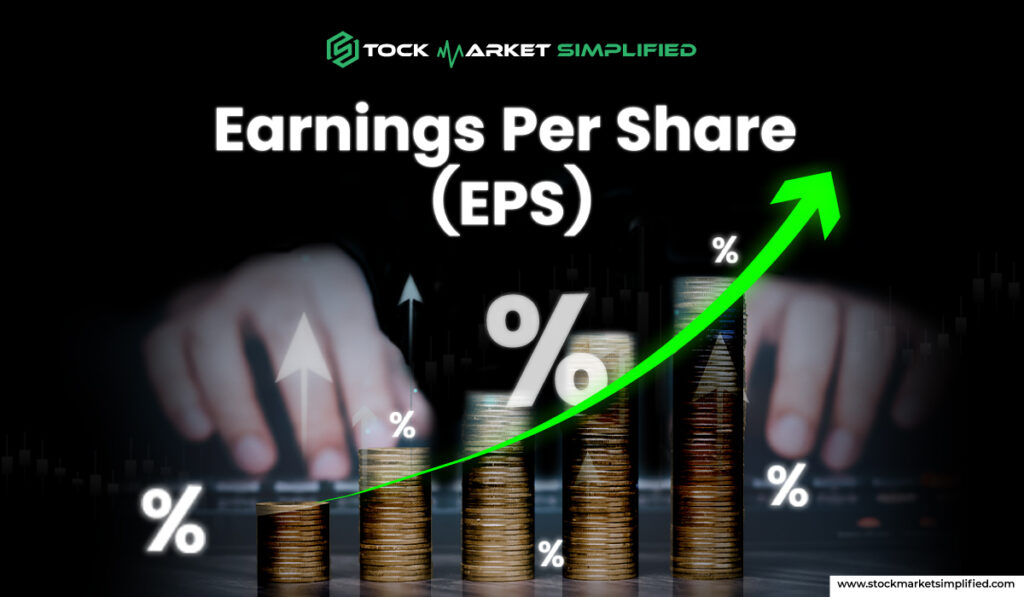Earnings Per Share (EPS)

Earnings Per Share (EPS) is a simple way to understand financial conditions of a company. It also shows investors how much profit is made for each share.
If simply explained, it tells investors about how much a company earns per share. This also them understand the real value of a company, listed on market.
Key Formula:
EPS = Net Income ÷ Total Outstanding Shares
What EPS Tells You
EPS helps investors see how much profit a company makes on each share.
- Higher EPS: Indicates the company is making good profits.
- Lower EPS: Could point to weaker financial performance.
Example:
Suppose if a company’s net income is ₹10,000,000 and has 2,000,000 shares. Now’s let see how to calculate EPS:
EPS = ₹10,000,000 ÷ 2,000,000 = ₹5
This means this company earns ₹5 extra value for each share.
Why EPS Matters
EPS is super important because it gives investors a quick way to measure profitability. Companies who have higher EPS are most commonly seen as more successful and helps gain more investors. More than this, this metric is also be used in other key financial ratios like Price-to-Earnings (P/E) ratio.
Types of EPS
1. Basic EPS
This is the simpler version of EPS. It uses the company’s net income and the number of shares currently available in the market.
Formula of Basic EPS = Net Income ÷ Outstanding Shares
2. Diluted EPS
Diluted EPS takes it one step further. It also considers future shares that could be added through things like stock options or convertible bonds. This gives a more cautious peak of earnings per share.
Formula:
Diluted EPS = Net Income ÷ (Outstanding Shares + Potential Shares)
Why Both Types Matter
- Basic EPS: Gives a quick, general idea of profitability.
- Diluted EPS: Offers a more realistic picture, accounting for future share dilution.
EPS, whether basic or diluted, is a handy tool for investors to compare companies and make better decisions.

 Instagram
Instagram 






